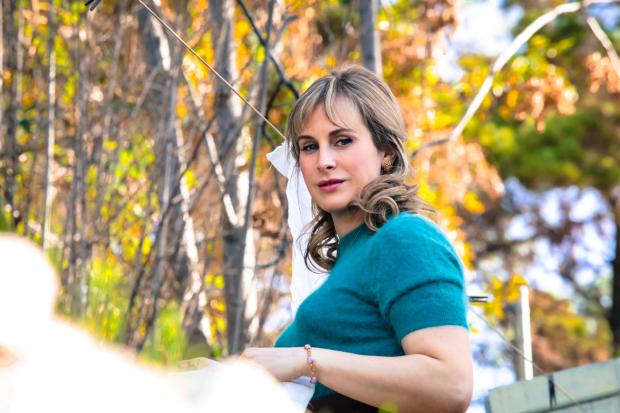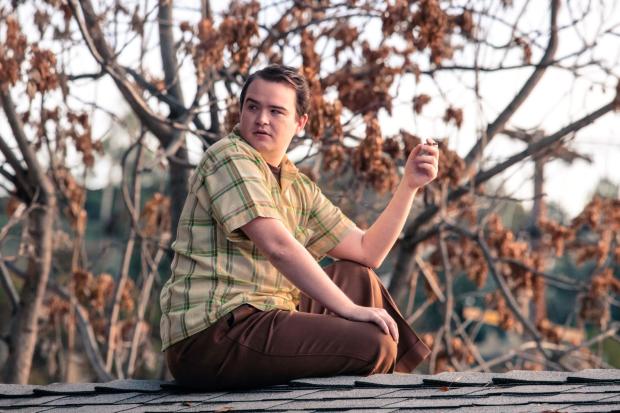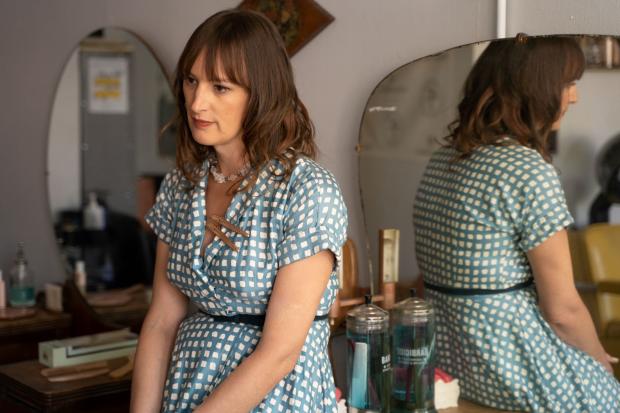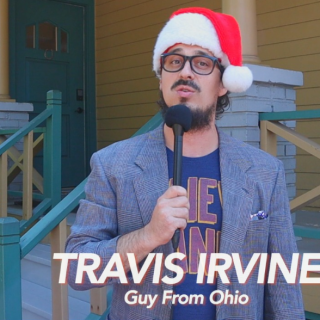Agnes (Zackary Drucker), the pioneering, pseudonymized transgender woman who participated in Harold Garfinkel’s gender health research at UCLA in the 1960s, has long stood as a figurehead of trans history. In this rigorous cinematic exercise that blends fiction and nonfiction, "Framing Agnes" explores where and how her platform has become a pigeonhole. Framing Agnes endeavors to widen the frame through which trans history is viewed, one that has remained too narrow to capture the multiplicity of experiences eclipsed by Agnes’s. Through a collaborative practice of reimagination, an impressive lineup of trans stars take on vividly rendered, impeccably vintage reenactments, bringing to life groundbreaking artifacts of trans health care. The films' signature form-rupturing style radically re-envisions the imposition of the frame on the cultural memory of transness through his communally driven excavation. This reclamation tears away with remarkable precision the myth of isolation as the mode of existence of transgender history-makers, breathing new life into a lineage of collaborators and conspirators who've been forgotten for far too long.
Agnes approaches the UCLA Gender Clinic with one very specific goal, to have gender confirmation surgery. To accomplish this task, she produces an impenetrable narrative of self that does not allow for a fluidity or revision of experience. She's in a long-term committed relationship and works as a secretary. Georgia (Angelica Ross) is a trans woman from the South who's looking for help, from the Church, the military, and now the gender clinic. Due to the racist climate in Los Angeles at the time, she faces constant scrutiny by police and is unable to find work. Though far from her birth family and community, Georgia is happily married and eager to find new pathways for her future. Barbara (Jen Richards) is located in the heart of a sprawling underground network of trans people in the 1950s Los Angeles. As a community ambassador, Barbara is often responsible for educating doctors about the more intricate details of trans life and organizing meet-ups where people share resources about transition.
Denny (Silas Howard) is an affable, working class man who finds himself occupying the borderlands between what we might now call butch lesbian and trans man. Uninterested in pursuing surgery, as he doesn’t want to lose access to the lesbian community. Denny is partnered and employed. Henry (Max Wolf Valerio) lives a solitary life, reclusive writer isolated and alienated from the world around him. Denied medical care, unable to get a job because his legal documents don’t match his gender, Henry (Max Wolf Valerio) is experiencing a pervasive hopelessness about his tenuous position in the world. Jimmy (Stephen Ira) is a 15-year-old kid who approaches the UCLA Gender Clinic feeling confident about his identity as a boy, even while his parents and doctors continue to tell him otherwise. Jimmy is playful and easy-going, often joking about himself and others throughout the interviews. To tell him otherwise. Jimmy is playful and easy-going, often joking about himself and others.
"Framing Agnes" features preeminent trans culture-makers breathing new life into those who redefined gender in the midcentury. In the late 1950s, a woman named Agnes approached the UCLA Gender Clinic seeking gender-affirming surgery. The film wants to disrupt the relationship between authorship and authority. There's no group of people more ubiquitously tied to our current decade’s politics than trans people. TIME’s Transgender Tipping Point in 2014 was just that, the catalyzing moment that brought trans people into the mainstream consciousness in a way we hadn’t been for nearly forty years. The documentary is grounded in a commitment to using experimental and performative methods to put pressure on culture-making moments that impact the trans community, from animating medical technologies to tell a story about the institutional surveillance of gender, to a performative and satirical response to invasive and imagined questions about minoritized identities.
"Framing Agnes" is born out of these fundamental beginnings which are rooted in a belief that trans people should remain leaders of the trans movement, and narrators of trans stories. This project is uniquely positioned to address critical questions that are being illuminated by the current spotlight on trans issues. The recent proliferation of stories on transgender rights and figures in popular media has resulted in unprecedented attention on gender non-conforming communities. Presenting one person’s story, rather than a story about a group, is a common storytelling method in medical and media histories of trans people. For example, the 1993 murder of Brandon Teena, as depicted in Kimberley Pierce’s "Boys Don’t Cry" (1999), remains a touchpoint of both news media and Hollywood attention. Trans people are positioned in isolation, untethered from community and family.
In reality, trans communities have been navigating and world-building together behind the scenes since before 'trans' was a thing. Isolation is, in fact, a narrative produced and patrolled by medicine and the media. Representation of trans and gender-nonconforming communities has changed dramatically in the last decade. "Framing Agnes" emerges as an incisive opportunity to both acknowledge social transformation and remember the formative, often flawed makings of history. Our project is emboldened by a team of artists motivated to blur the lines between fiction and nonfiction, past and present, in pursuit of a more expansive and nuanced future. The film is a labour of love that has relied upon the grit, talent and endurance of so many. We can imagine and enact social change. Indeed, Agnes survived by breaking frames of interpretation and understanding. "Framing Agnes" aims to show us how this may be one of the few arenas where our lives and our histories have been well-documented and linked to the contemporary times in which we find ourselves living, dying, and sometimes thriving.
Are we evidence of the sexual revolution’s victory? Or a disconcerting development of the tech era? Are we a fundamental threat to heterosexuality? Or glamorous entertainers giving thrills to bored housewives? Examining and upending these narratives, as "Framing Agnes" aims to do, will illuminate not only how media narratives about trans people have changed over time, but also how the concerns of an era are read onto the bodies of some of the most marginalized in society without their consent. The film becomes an important object of study for those interested in popular culture, media studies, and the history of race, class, and gender. There’s extraordinary value in imperfect histories. They help us recognize where we're now and imagine new possibilities for our future. As society wrestles with the legacy of histories told and buried, "Framing Agnes" offers something urgently relevant to help us move differently towards a more equitable future.
Opens Fri, Jan 13, 5:45 pm at Gateway Film Center
https://gatewayfilmcenter.org/movies/framing-agnes-2022/
Framing Agnes - Cleveland International Film Festival :: March 22 - April 1, 2023
CIFF46 SCREENINGS
KeyBank State Theatre
Friday, April 08, 2022 at 5:00 PM
Saturday, April 09, 2022 at 2:30
PMCIFF46 Streams On Demand
Sunday, April 10, 2022 at 11:00 AM -
Sunday, April 17, 2022 at 11:59 PM








